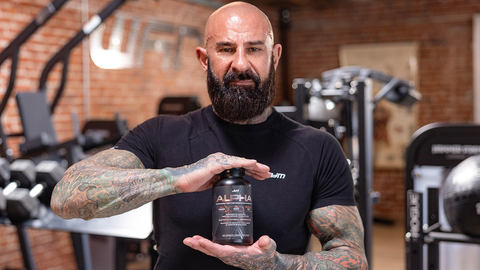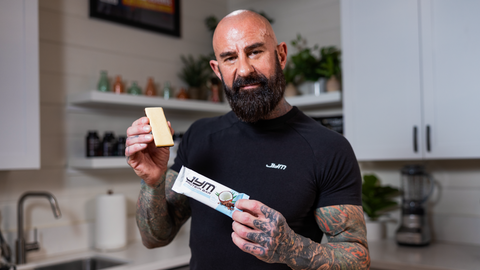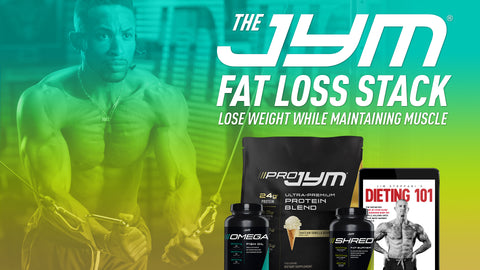The complete guide to water and electrolyte intake for optimal health and performance.
We all know we need to drink water, but for some reason, many people find it nearly impossible to reach their hydration goals. It may be that the bar has been set far too high (8 glasses per day, anyone?), or that plain water is just plain boring.
It’s probably a little of both.
That’s no surprise. Plain water is boring. And reaching some crazy high number of glasses you must drink per day is daunting. The task is just way too big to swallow.
Where did 8 glasses of water per day even come from?!
Luckily, you don’t have to drink 8 glasses of water per day or drink plain water to be well-hydrated. In this guide, we’ll give you the ins and outs of hydration. Here’s what you can expect:
- Learn why hydration is important
- Understand the difference between dehydration and underhydration
- Nail down the amount of water you should be drinking each day
- The benefits of staying well hydrated
- Some of our best secrets for drinking more water
Why is hydration important?
To understand why hydration is important, you have to first know what hydration is.
Hydration is fluid balance within the body – this includes water and electrolytes. They work together to manage and maintain the fluid inside and outside of cells. Hydration also plays a major role in blood volume.
For the body to function properly, the balance of water inside the cells and outside must be in balance. Electrolytes – sodium and potassium – help maintain this equilibrium. If you have too much or too little of either, you risk hydration problems and an imbalance of fluids in the body.
Electrolytes are minerals that include sodium, potassium, chloride, and bicarbonate. These macro minerals are required in the diet in large quantities and are essential for the regulation of nerve and muscle function and maintaining acid-base and water balance.
Your body gets all the electrolytes it needs from the food and beverages you consume daily. Sometimes you may end up with more than you need – for that reason, the kidneys work hard to help maintain fluid balance by filtering water and electrolytes excreting excess in urine, and returning some to the blood.
An imbalance of electrolytes and fluid that goes untreated or overtreated can lead to several health concerns including:
- Dehydration and overhydration
- Confusion and altered mental status
- Seizures
- Kidney failure
- Liver shock
- Hypotension
- Lactic acidosis
- Death
Several factors contribute to hydration status and may put you at risk of dehydration:
- Regular exercise
- Living in a hot or humid environment
- Poor diet and water intake
- Taking certain medications
- Having certain heart, liver, or kidney disorders
- Persistent vomiting or diarrhea
- Sweating from a fever
Signs and symptoms of dehydration include:
- Dark-colored urine
- Feeling lightheaded and dizzy
- Feeling thirsty
- A dry mouth
- Tiredness or fatigue
- Urinating less frequently
- Rapid heartbeat
- Nausea and vomiting
While this sounds drab and dreary, knowing what to expect and look out for can help you prevent the preventable. Some of the signs and symptoms are like other ailments making it difficult to pinpoint dehydration as your problem. And since most people associate dehydration with nothing to be concerned about, it can go unnoticed and quickly escalate to something scary.
Spending hours in the hot sun doing yard work without a water or lunch break is a recipe for disaster. Foregoing a glass of water in the evening to avoid having to get up and use the bathroom in the middle of the night may not be a clever idea.
And if water is just not something you’re excited about – don't worry – there are simple steps you can take each day to stay hydrated and prevent dehydration.
How to Know if You’re Hydrated
Now that you know what it looks like to be dehydrated, how do you know if you’re hydrated?
Let’s take a moment to learn the difference between dehydration and underhydration.
Underhydration is when someone isn’t meeting their daily fluid needs, however, they may be getting enough hydration from other sources. Underhydration doesn’t necessarily mean someone is dehydrated. It just means they’re a low drinker.
On the other hand, dehydration is an imbalance of fluid and electrolytes. If you’re dehydrated, you have a water deficit.
So, are you someone who just doesn’t drink enough? Or are you teetering on dehydrated?
The easiest way to determine whether you’re hydrated is to assess the color and smell of your urine. Clear (or light yellow) urine with no foul-smelling odor is an indication you’re well-hydrated.
Let’s say your urine suggests you’re hydrated but you know you don’t drink enough water. You’re getting your fluid and electrolyte needs met elsewhere beyond plain water.
How Much Water Should I Be Drinking?
The rule that you must drink 8 glasses of water per day is a myth. It’s based on population urine measurements that don’t consider hydration status.
An easy equation for determining water needs is to take your body weight and divide it in half. The number that results is the number of ounces of water you should drink each day. This is a general rule of thumb. If you’re eating plenty of water-rich foods, drinking lots of fluids (water, coffee, tea, seltzer, juice, etc.), and your urine is clear or almost clear, you’re golden despite whether or not you meet your ounce goals.
In fact, the best way to make sure you’re hydrated is to forget about large water goals and instead focus on thirst signals, consume a balanced diet, and consciously drink more water when exercising or exerting energy in the heat.
Should I Use an Electrolyte Powder?
We already know that electrolytes are important. A lack of fluid balance including electrolytes could take you down the wrong path. And since many people find it difficult to drink plain water, an electrolyte powder or hydration supplement can be helpful.
Electrolyte powders contain essential minerals and flavorings to enhance plain water. They’re ideal for those who exercise regularly, in extreme heat, or simply want something more exciting than water to drink. They can also help you rehydrate quickly. If you’re feeling thirsty, sluggish, dizzy, or nauseous, an electrolyte drink can replenish electrolytes and hydration, so you feel better fast.
JYM Hydration is an ideal electrolyte powder for this purpose. It contains six key electrolytes — including sodium, potassium, and the often overlooked chloride — in addition to Ashwagandha Root Extract and L-Theanine to help reduce stress in the body.
For best results, mix one scoop of JYM Hydration with water in any water bottle or shaker cup. JYM Hydration can help fill in the gaps and keep your hydration levels in check.
The Benefits of Staying Well Hydrated
The benefits of staying well hydrated beyond the obvious of dehydration prevention include more focus and energy, improved performance and exercise, and weight loss support.
Better Brain Power
The brain is made up of 75% water. Research suggests even a 2% reduction in hydration leads to poor cognitive function, fatigue, and reduced alertness. Other studies suggest that prolonged and severe dehydration can have negative effects on short-term memory and visual perception.
Fortunately, drinking more water and balancing electrolyte levels can improve cognition, mood, alertness, and visual attention. Though it is not easy to study hydration’s effects on mood and cognition due to so many variables among subjects, for that reason, more research is needed.
When you feel a headache come on, drink water first. And since dehydration does cause headaches, drinking more water can help relieve tension if hydration status is the culprit.
You can also expect better quality and longer duration of sleep when you’re well-hydrated.
Improve Exercise and Performance
Water and electrolytes (especially sodium) play a key role in energy, muscle contraction, and perceptions of fatigue. Salt tells your muscles to relax and contract making it easier for you to feel the contraction.
When you have a better muscle connection, you can bang out a better workout. Imagine lifting weights and not being able to tell whether your targeted muscles are firing. Without enough salt and reduced hydration, you’ll be hard-pressed to squeeze out a few more reps.
Sodium and hydration are also important for optimal blood flow during a workout. This is important for delivering nutrients to the muscle for better and faster recovery. Not to mention, more blood flow means a bigger pump. And a bigger pump can help you train harder.
Additionally, researchers have studied the effects of hydration and electrolytes on performance for decades. Participants who fell short on fluid intake than recommended have poorer performance and energy levels than those who ate a performance-enhancing diet and met fluid requirements.
If you’re exercising in the heat or for long durations, you’ll need to replace fluid during and after a workout. Drink 16 to 24 ounces of water for every pound of weight lost after a workout.
Promote Weight Loss
Water and hydration work in a few ways to support and promote weight loss efforts.
- Swapping calorie-rich beverages for low or no-calorie beverages like water, coffee, tea, or diet soda is an effortless way to reduce your overall calorie intake and promote weight loss.
- Drinking water with and between meals can help you feel fuller and more satisfied, leading you to eat fewer calories over the course of the day (and week).
- Electrolytes and water can help relieve water retention and puffiness. If you’re retaining water, this can cause the scale to show a higher number than your actual weight and make you appear heavier than you are.
- Reinvigorate your workouts by improving workout performance and muscular contraction. Getting a better workout can help you burn more calories, build more muscle, and lose body fat.
- Hydration is essential for normal hormone signaling and cell function. A hormone imbalance can make your weight loss efforts more difficult.
Tips for Drinking More Water
Try some of these tried-and-true tricks for drinking more water.
Summary
Water and hydration are important because they help your body function optimally, improve your quality of life, and help you reach your fitness and healthy body goals. When you start drinking more water you’ll urinate more often, feel fuller and more satisfied, and may even feel less bloated. Incorporating an electrolyte powder or hydration supplement like JYM Hydration into your daily routine can fill in any gaps and keep you on top of your fluid needs.
Stressing about meeting some crazy water goal can do more harm than good. Instead, focus on a balanced diet packed with water-rich fruits and vegetables, and consciously drink more water (and other beverages) throughout the day.
JYM Hydration promotes efficient rehydration, muscle function, and overall well-being.

JYM Hydration - Lemon Lime
Buy Now
References
- Arca KN, Halker Singh RB. Dehydration and Headache. Curr Pain Headache Rep. 2021 Jul 15;25(8):56. doi:10.1007/s11916-021-00966-z
- Judge LW, Bellar DM, Popp JK, Craig BW, Schoeff MA, Hoover DL, Fox B, Kistler BM, Al-Nawaiseh AM. Hydration to Maximize Performance and Recovery: Knowledge, Attitudes, and Behaviors Among Collegiate Track and Field Throwers. J Hum Kinet. 2021 Jul 28;79:111-122. doi:10.2478/hukin-2021-0065
- Liska D, Mah E, Brisbois T, Barrios PL, Baker LB, Spriet LL. Narrative Review of Hydration and Selected Health Outcomes in the General Population. Nutrients. 2019 Jan 1;11(1):70. doi:10.3390/nu11010070
- Merck Manual: Electrolytes
- National Library of Medicine: Adult Dehydration
- Rosinger AY, Chang AM, Buxton OM, Li J, Wu S, Gao X. Short sleep duration is associated with inadequate hydration: cross-cultural evidence from US and Chinese adults. Sleep. 2019 Feb 1;42(2). doi:10.1093/sleep/zsy210



